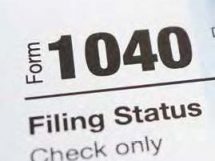
As the 2024 presidential election approaches, small-business owners in Kentucky are paying close attention to the policies and platforms that could shape the future of their operations. From tax policies to healthcare regulations and workforce development, the choices made by the next administration will have a profound impact on the Bluegrass State’s small businesses.
The Role of Small Business in Kentucky’s Economy
Kentucky is home to over 350,000 small businesses, accounting for more than 99% of all businesses in the state. These companies span a wide range of industries, including agriculture, manufacturing, retail and services. Small business owners face unique challenges, such as navigating complex regulations and accessing capital, and the policies set by the next president will influence these factors in significant ways.
What’s at Stake for Kentucky’s Small Business Owners?
The upcoming presidential election will influence several key areas that are central to the success of Kentucky’s small businesses:
- Taxation: Whether taxes are lowered or increased will have a direct impact on businesses’ cash flow and ability to invest in growth.
- Healthcare: The direction of healthcare reform will either alleviate or compound the financial pressures small businesses face in providing benefits.
- Regulation: A shift toward more or less regulation will shape the competitive landscape, determining how easily businesses can expand, hire, and innovate.
- Workforce: Education and training policies will play a crucial role in ensuring Kentucky’s small businesses have access to a well-prepared and reliable workforce.
How the Parties View Key Issues for Kentucky’s Small Businesses in the 2024 Election
- Tax Policies
One of the top concerns for Kentucky’s small-business owners is the potential for changes to federal tax policies. Both major parties have distinct approaches to taxation and the outcome of the election could mean substantial shifts.
- Republican Viewpoint: Historically, Republican candidates advocate for tax cuts and deregulation to boost business growth. If the GOP candidate wins, small-business owners may see tax reductions, especially for pass-through entities, which represent the majority of small businesses in Kentucky. Proponents argue this would free up capital for reinvestment in hiring, equipment and expansion.
- Democratic Viewpoint: On the other hand, Democratic candidates have emphasized raising taxes on the wealthiest individuals and corporations, with a focus on increasing public services like healthcare and education. This may raise concerns for small- business owners who fear the costs of expanded programs could be passed down to them. However, there could also be benefits from increased government investment in local infrastructure and support for underserved communities.
- Healthcare Costs
Rising healthcare costs are a major burden for small-business owners, who often struggle to provide affordable coverage to their employees. Both parties have differing approaches to healthcare reform.
- Republican Platform: Republican candidates tend to focus on reducing government intervention in healthcare, promoting market-based solutions to lower costs. For small-business owners, this could mean fewer mandates on coverage requirements but potentially higher overall healthcare costs if they continue to rely on private insurers.
- Democratic Platform: Democratic candidates have generally advocated for expanding access to healthcare through public options or government-sponsored programs. Small businesses that currently struggle with the cost of private insurance might benefit from more affordable alternatives, but there are concerns about potential tax increases to fund these initiatives.
- Regulatory Environment
The regulatory landscape can have a direct impact on Kentucky’s small businesses, from labor laws to environmental regulations.
- Republican Perspective: The GOP traditionally advocates for reducing federal regulations, which they argue stifle innovation and growth. For small businesses, less regulation could mean fewer compliance costs and greater flexibility in how they operate. However, some fear that reduced oversight could lead to environmental and labor issues that could affect their long-term viability.
- Democratic Perspective: Democrats generally favor stronger regulations, especially in areas like worker rights and environmental protection. While this might mean increased compliance costs for small businesses, it could also provide more stability for workers and communities, leading to long-term economic benefits.
- Workforce Development
Kentucky’s small-business owners also rely heavily on a skilled and reliable workforce. Policies that affect education, training and immigration will play a major role in shaping the state’s labor market.
- Republican Approach: Republicans often emphasize vocational training and apprenticeship programs, seeking to bolster skilled labor in sectors like manufacturing, construction, and agriculture. These policies could help address the labor shortages that many small businesses in Kentucky currently face.
- Democratic Approach: Democrats typically focus on expanding access to higher education and offering pathways for marginalized communities to enter the workforce. This could mean more investment in workforce development initiatives, potentially leading to a broader pool of qualified workers for small businesses to tap into.
What Kentucky’s Small Business Owners Can Do Now
Small business owners across Kentucky should closely follow the candidates’ proposals and assess how their platforms align with their own business needs. Staying informed and engaging with local business organizations like the Kentucky Chamber of Commerce or the National Federation of Independent Business, plus local chambers and economic development teams are a great source, all can provide valuable insights into how each party’s policies will play out on a local level.
While uncertainty is a given in any election, small business owners can take proactive steps to prepare for potential changes in the political landscape. This might include reassessing financial strategies, exploring alternative healthcare options, or even advocating for specific policies that support their industry.
As Kentucky’s small businesses navigate the election season, they will ultimately play a pivotal role in shaping the state’s economy for years to come. By staying engaged and informed, business owners can position themselves to thrive — regardless of the political outcome in Washington.
The Lane Report readers, who form a vital part of Kentucky’s small-business community, will be closely monitoring the election’s outcome. The choices made in Washington will resonate on Main Streets across the Bluegrass, influencing the opportunities and challenges faced by entrepreneurs for years to come.





